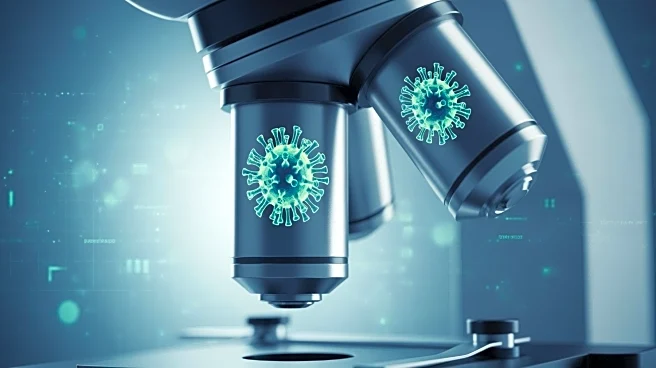What is the story about?
What's Happening?
Syncell, Inc., a leader in subcellular spatial proteomics, has announced a strategic co-marketing agreement with Thermo Fisher Scientific. This collaboration aims to develop a fully integrated, high-resolution spatial proteomics workflow. The partnership combines Syncell's Microscoop technology with Thermo Fisher's Orbitrap Astral mass spectrometer series. This integration allows researchers to conduct unbiased spatial proteomics with high subcellular resolution, enabling the investigation of protein location and organization across tissues and cells without predefined targets. This advancement moves beyond traditional antibody-based spatial methods, offering new possibilities for comprehensive protein mapping and discovery in fields such as oncology, neuroscience, drug discovery, immunology, and cell biology.
Why It's Important?
The collaboration between Syncell and Thermo Fisher Scientific represents a significant advancement in the field of spatial proteomics. By integrating cutting-edge technologies, researchers can achieve unprecedented analytical capabilities, pushing the boundaries of cell signaling and revealing spatial and chemical details previously inaccessible. This development is crucial for the scientific community, as it provides a hypothesis-free approach to subcellular proteome analysis, potentially leading to breakthroughs in understanding complex biological systems. The ability to map proteins comprehensively across various tissues and cells can accelerate discoveries in disease mechanisms, drug development, and personalized medicine, benefiting both researchers and patients.
What's Next?
The partnership is expected to set a new standard for high-resolution proteomic discovery at the cellular and subcellular level. As the integrated workflow becomes available, researchers will likely adopt these advanced tools to enhance their studies in various biological fields. The collaboration may also inspire further innovations and partnerships in the proteomics industry, driving advancements in technology and methodology. Stakeholders, including academic institutions, pharmaceutical companies, and biotech firms, may respond by investing in these technologies to stay at the forefront of scientific research and development.
Beyond the Headlines
The ethical implications of this technological advancement include considerations around data privacy and the responsible use of proteomic information. As researchers gain access to more detailed biological data, it is essential to ensure that this information is used ethically and securely. Additionally, the collaboration highlights the importance of cross-industry partnerships in driving scientific progress, demonstrating how combining expertise and resources can lead to significant breakthroughs.
















